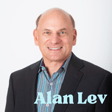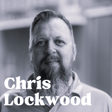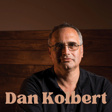Become a Creator today!Start creating today - Share your story with the world!
Start for free
00:00:00
00:00:01

Canadian Castaway (Sacha Roy): Sharing Alternative Living, Cabins, and Small Spaces
Sacha Roy is a documentarist filmmaker and photographer who spent almost a decade constructing his very own off grid cabin in the Canadian forest. Starting without any building experience, limited funds, and a desire to be as self-sufficient and resourceful as possible, Sacha succeeded in his goal: much to the delight of his many Instagram followers, who have followed his lifestyle evolution from the very beginning of this endeavor. You can also find him on YouTube, where he documents the "Tales of Castaways": the real, raw, and detailed insights of people's experiences pursuing their own alternative living dreams.
Check out his YT Channel HERE and be sure to give his IG a follow.
Transcript
Inspiration and Background
00:00:28
Speaker
Okay, so by what you want to begin? I guess logically, my biggest question and probably the question of most people that first land on your Instagram is, how the hell did you get to this point in life where you're able to build this beautiful house completely off-grid? What did your life look like before this? Yeah, okay.
Career Shift to Alternative Lifestyle
00:00:51
Speaker
So basically, I'm a filmmaker.
00:00:54
Speaker
I used to work for a different kind of agency, but one of the major clients I have back then was Red Bull. Yeah. And I used to travel a lot because of that. And at some point, when I was traveling for that, I got exhausted. Plus, when I was back in Canada, I had other clients, so I was just keeping working, working, working. So it ended up to be almost seven days a week to just do video, video, video.
00:01:20
Speaker
And I needed like another challenge. So at some point I've always been interested into like cabin and alternative living. So I was maybe it's a good timing for me to start my own project. To do something kind of other with my life. Yeah. So that's the main thing that happened.
00:01:38
Speaker
When you say you were interested in alternative living sort of previously while you were working as a filmmaker, what does that mean? Like were your friends kind of doing things that were similar to what you ended up kind of following the example of?
Influence of Media on Lifestyle Choices
00:01:51
Speaker
Oh no, not at all. It was something I was curious about. I was listening to a lot of YouTube videos about people who do that.
00:01:58
Speaker
And at some point, not back then, but after, during the construction, I ended up doing a TV show called I Build V, which was exactly a TV show about alternative living. So it was perfectly on the spot. Yeah. It's fun to meet people also in their real life who have similar projects to just share. And with the Instagram community, it's also something great that you can connect people to give you tricks because
00:02:26
Speaker
I started from far. I didn't even know how to build something when I started, so it was a big learning curve. I was just going to ask, did you grow up in a typical suburban environment? Did you live in the city previously?
Choosing a Location for Off-grid Living
00:02:44
Speaker
Yeah, I'm from Quebec City originally, but I've done my project in the Utawe region just because at that time, because I said I was working away all the time, the airport in Ottawa is international. So for me, it was just easier to commute to go work.
00:03:03
Speaker
I like this spot here, it's great. I have the river and the kind of setup, I could not really have it in Quebec City because things back then were so expensive. And when I arrived here, I saw the opportunity that when I was younger in Quebec, I could have take, but back then I had no money.
00:03:20
Speaker
And it's always a question of money. I could have done the same project in Quebec, but the land are expensive. And if you want something next to a river, it's going to be even more expensive. So for me here, when I arrived, I just was like, okay, that's the spot. Yes, it's far. It's five hour and a half drive. But at some point, you don't care. If I want to go see my friend, I just go. I have a car, so that helps.
00:03:44
Speaker
How did you find this particular location?
Acquiring Land
00:03:46
Speaker
Did you go on a road trip with friends or something and you stumbled upon it? I was renting a room in Gatsnow. I was living in a condo there in Quebec City. I was living with my grandmother in a room. I was just living in my luggage back then. Basically, I was always everywhere and nowhere. When I found the village I'm next to, it's called Wakefield.
00:04:11
Speaker
I like this spot but I didn't really was looking to buy there because things were expensive too but I already had kind of started to do research about which kind of home I wanted to build for myself, what was my need and when I was looking for land I was looking in another village more far from here
00:04:32
Speaker
And I didn't offer on the land. Yeah, I'm great. It didn't work out because the land was facing north. But back then I didn't know about all those details, like for the sun and rust. So I just contacted another guy and it ended up that the owner of the land I have here also had an off-grid home, which is my neighbor down the mountain.
00:04:55
Speaker
contact the guy I'm like hey look this is what I want to do yeah I just I show him like the draft of my plan and he was like yeah just swing by I'm gonna show you like my place and after that you can go see the land which is like on top of the mountain and
00:05:08
Speaker
He was like, so that's the spot here, which he don't really wanted to sell it. He was trying to keep the land for him as he retired, but his grandchild in Ontario, they were living far and like he was getting old. And so it was like, you know what? I think I'm just going to sell it to you soon.
00:05:26
Speaker
I was asking like 12 grand for the split because it was not able to, it was a very hard space to build. You needed someone like is motivated. But back then it was like 25. So I was motivated to do something different.
00:05:40
Speaker
No kidding. So you tell this guy that you're interested in building on his land. You said you showed him some drafts of what you had in mind for the house. But did he grill you at all about your carpentry skills or really make sure that you were somebody who was going to actually get the job done?
Challenges in Material Transport
00:05:56
Speaker
Or were you just so excited that he was like, you're going to do it? So I think at first, I think he was suspicious that we'll maybe not do it.
00:06:04
Speaker
Yeah. But when he started to see me working like crazy about like just doing the trail back, see it was a forest. There was nothing. There was not even a trail to move my foot. Sorry. Because the place I'm at right now, it's a development. It's been like developed in the 70s, but it's been abandoned. So I just end up the guy, he had like a couple of lands around.
00:06:27
Speaker
And the lot I'm in, it's 1.3 acre. It's very small, but I'm surrounded by nothing because people, they don't build here. The land is too tricky. You will need a lot of blasting and you will need a road basically, which there was not anyway. And yeah, I started the project. I started by doing the trail first. And then after that, the goal was to reach the bottom of my kind of mountain by four-wheeler.
00:06:55
Speaker
And when I had this done, like I had a path that is workable with a four-wheeler, I was like, okay, maybe I can start by doing something else. And yeah, I'm kind of like on a boulder, so there's no access at the cabin directly. Yeah.
00:07:10
Speaker
So I reached the bottom and then when I reached the bottom, I was what I'm going to do now. So my other friend came up with the material elevator idea. And I thought that it was how I bring all the material. I brought all the material here with the four-wheeler. So I had a restriction with the length of stuff. And I also had restriction about like the weight of things. And it was a big term project. I had no skills.
00:07:37
Speaker
and the guy helped at the beginning to kind of just align me with here it could be the location I wanted to build my cabin but I will not do it so I suggest you build there and it was just great because the the hillside I'm in it's face out for a solar project like I had it was perfect sure not easy but doable and I needed something
00:08:02
Speaker
else than just producing video at some point. So it was a very good challenge. But it's not for everyone.
00:08:10
Speaker
Yeah, you can't say that enough. I have so many questions about the construction detailing that you just mentioned, but before we jump into that, I just have a logistical framework that I want to set here for listeners. Did you save a whole bunch of money for a few years before doing this? I knew you said it wasn't a hugely expensive project necessarily, but were you still working at the time when you started building?
00:08:36
Speaker
Yeah, I cut half my workload. I had no savings, basically. I used all my money to buy the land the first year. After that, I was going for a gig. And then I would take all the money. I invest into the project, buy some wood for the... It started, I have to buy wood for the material elevator. And after that, I had no more money. So I just continued like this. And I built literally with a credit line of $18,000.
Building on a Budget
00:09:06
Speaker
Wow.
00:09:06
Speaker
So I would load it, go back work, try to unload it. I've built this place on seven years. Because financially, I could not do it all at first. Banks are not really happy about alternative lifestyle. They want something more conventional. So the bank never wanted me to give me a mortgage, basically.
00:09:29
Speaker
Now I have a mortgage credit line because the interest rates are lower. I still have to pay a lot on it, but they gave me that credit line when my construction was finished. Of course. I kind of did everything upside down. It's very hard. They're not happy about when you're off-grid for the systems. Just because you hit by a wood stove, mainly,
00:09:58
Speaker
And they're kind of not sure what do you do when you're not there. For them the bank they're really into a mold which is like the conventional and they're good with that. But when you go like a little bit on the side you're kind of left
00:10:14
Speaker
along with your project. And you would ask everyone with like some similar project. Sure. It's very hard to get bank going into this kind of project. It's doable. Right. Right. It's not impossible, but it's just very hard. Yeah.
00:10:28
Speaker
Well, these kinds of institutions, we have to think about things from their perspective. They're lending money to minimize risk as much as possible. And if you approach them, even if you're excited and you come across as very honest and prepared, they have no idea what people are going to do with money at the end of the day.
00:10:48
Speaker
It does make sense, but it does suck because as you're saying, there are so many beautiful ways to live lives that are a little bit different and a lot of them do require money upfront. So you have to be so strategic about making sure that you have stuff saved to start a project or
00:11:05
Speaker
like you did be so invested in this idea that you could complete this construction over seven years. That is wild. My next question for you is, what is it about off-site living and this full cabin construction idea that appealed to you so much to stick with it throughout so many years?
Designing for Efficiency
00:11:28
Speaker
I just wanted to have a building that is the minimum size possible by the law because unfortunately, do you live in Canada?
00:11:38
Speaker
No, I live in Chicago. Okay, maybe the rules in the US are different, but here we have minimal square footage that we have to respect for all kind of building. Your main building has to be, for example, in the area, I think it's 454 square feet, which is not that big, but I'm like 464 or something like this. I can't remember. Sure. But yeah.
00:12:03
Speaker
I had to follow that at first. After that, if I want to have like a backyard shed, I can. Yeah. So if there is something small for, they call it like just a guest house. But the main building here got to be a certain minimum. I wanted to go the minimum just because it's easier for heating. I don't need big space. I used to be a two person here who was comfortable. The more it's big, the more you're going to have to do your cleaning for a long time, et cetera. So everything is more simple when it's smaller.
00:12:33
Speaker
but at a certain level. I don't want to go living in a 64 square feet. I would not like it. I sometimes do like a van life. I got a friend with a van. I needed a place to stay comfortable while not shooting. Big enough for my gear, for my stuff to just move comfortably. There's a minimal also you want to go for that. You need enough space to be a human being with multiple needs.
00:13:01
Speaker
Be with all this kind of project. People, they just have to know what are my needs. People ask me all the time, where do you start by? First, start by asking yourself, what do you need? Yeah. Sasha, that's assuming people answer that honestly. What I really like about your Instagram is it's so obvious that you don't have a high tolerance for bullshit. You have a small space for what you need and you made sure to implement all of those elements. But
00:13:30
Speaker
a lot of people will tell themselves that they need 10,000 square feet for themselves and their dog, and a super fancy kitchen that they never use, and a massive bedroom that they just have one bed in. I don't know since how long you've been following my project, but back then, I was also super honest because the system I use here, there's a little system that are custom for the rainwater,
00:13:56
Speaker
for my propane heater. I mean, I tried stuff. Sometimes they would not work. They would blow. I was showing that. I was super honest with people because you will, it's just not like an IKEA house. I mean, like you don't take the plan and okay, you install this there and I hope it works. There's a lot of, you have to be curious and you have to do a lot of research. And when it works, you don't touch it. Good.
00:14:24
Speaker
Yeah, you pray that it continues to work. A lot of tries and errors out there. And as I said, sometimes I had no clue what I was doing. And then people on Instagram, they would contact me and be like, hey, I've seen this system. You should try it out.
00:14:40
Speaker
Sure. It's also a question always like how much money you have. This gives you a restriction. Absolutely. Creative with the money you have. Right. Right. And also super technically aware of what you're doing. Can you hear me? Yeah.
00:14:58
Speaker
Sorry, I have another tab that opened up here. Like you're saying, if you build a system for heating or for collecting rainwater and it fails, it's going to take money to replace that too, right? So how many times can you redo the same thing before giving up altogether? A lot.
00:15:15
Speaker
big considerations.
Winter Challenges in Off-grid Living
00:15:17
Speaker
And so you mentioned though that you wanted to sort of implement a solar power element to your house early on. So I'm wondering like, what in addition to that and the small square footage of your house were priorities for you? Like what features of the cabin did you want even upfront?
00:15:36
Speaker
But the thing is I always been someone that like to play outside since I'm young. So I needed a place in the wood because if you arrive here during summer, the doors open, the windows open. I spend most of time outside winter. It can get a little bit.
00:15:56
Speaker
cluttered like in this place because I'm bored, I'm tired to be in the cabin but it's still big so it's fun. There's like two living rooms, there's like the living room upstairs for a movie, there's a living room downstairs for like more chatting with my friend. I have my small office also, I have like the back shed to go work on my stuff. I still have space to play but summer it's just the playground is outside.
00:16:22
Speaker
So it's also depend on what you spend most of your time. Some people, I guess they like to have 2,000 square feet because they don't like small space. My mom always says that big houses are to store the ego of the person living in there.
00:16:42
Speaker
Yeah. So all of your spaces are super, super intentional. Like you're talking about, there's a specific purpose for this living room and upstairs is your moving room, movie room. So it's for like alternative activities.
00:16:57
Speaker
All of this starts with the foundation of the cabin, and you talked about how it was really difficult to figure out how even to set that. Were you just referencing your friends as sources for how to build a foundation of this house? Or were you on YouTube? Were you asking architects, how'd you go about it?
00:17:18
Speaker
The first thing I had to build something that was easy to build.
Simple Architectural Design
00:17:24
Speaker
So that's why the structure is not that much complicated. It's just one slope. Sure. I thought at that time, one slope is the easiest way to build something because you have roof rafters, you have basically just one side instead of the...
00:17:39
Speaker
This is also something that is more costly when you build a house to have the triangle trusses instead of just one slope. So considering my fact that I'm poor, I had to go with something that was easy to build that would cost less than a normal house. So foundation at my site, it's impossible. There's no way I can bring a concrete truck.
00:18:06
Speaker
So just for that, I have to build on concrete pad, which is on stilt. And in the area here, it's very like hills everywhere. So it's not uncommon to see cabins or house laying on stilt.
00:18:21
Speaker
Yeah. So for me it was natural and it was like kind of normal for everyone. So you see the system here when I designed the cabin that was like the nut come on but in other countries it's the rainwater system.
00:18:36
Speaker
Yeah. Because if you go, for example, in Salvador or Nicaragua or Ecuador or whatever, Peru, you can have like the beach front house with a cistern of water. Right. And a truck deliver water in that thing. So for me, I saw all that because I used to film surf movies. I would spend a lot of time back there. And for example, in Salvador, you know that the city is going to give water in the pipe.
00:19:02
Speaker
So you have to open your pipe to fill your cistern. For example, on Wednesday, here you have to put your garbage out on Wednesday, but there you open your water tap and don't forget it. Otherwise, there's no more water for the rest of the week. So seeing that, it's maybe not common for people here because they have access to water almost everywhere and easy.
00:19:25
Speaker
But in some other countries, the water is not something easy. And for them, a cistern, it's a way to keep your water and it's completely normal. Right. Okay. So you are quite obviously willing to, I don't want to say struggle because you clearly enjoy it, but kind of go the route of
00:19:46
Speaker
needing to put in more work in order to have basic household amenities and things like that. And it's kind of fun, but it's interesting because, for example, if you don't have power because there's a tree that fall on the line. I mean, here I have like two backup generator. If there's no sun for a while, I got my cistern and it's a small pump. So I'm not stuck without water.
00:20:12
Speaker
Like in the normal household in the cities, sometimes people will be stuck with no water for a week or it's management because you don't want the tank to freeze. But in another way, it gives me maybe the opportunity to be a little bit more self-sufficient in case of cataclysm in the system. But I'm not there because I believe there was going to be some beta, but it gives a sense of more security.
00:20:39
Speaker
Yeah, many generals would like the water, the power, etc. And it is, again, so custom to you. So that leads me to my next question. Where did you source building materials? Because even now, at least in the US, oh my God, if you wanted to construct an all wood cabin, the raw material alone is exorbitantly expensive. How do you do this?
Rising Cost of Materials
00:21:04
Speaker
Back then, I started building in 2016. 2017 was the framing. It was very cheap. The framing of the cabin cost me around like 40 grand.
00:21:18
Speaker
like we have local mail nearby for all the the interior pine you see there i've paid i think four grand or something like this so in total the house i did an article in dual magazine back then but cost me approximately 64 000
00:21:35
Speaker
Sure. In wood. Insulation. But as I say all the time, after COVID, the price skyrocket, you will do the same project that I have right now. I bet it would be like $300,000. God. Just because the price of everything is just expensive and just a box of screw. Right. It's totally a different price than
00:21:57
Speaker
It's not even 10 years ago. It's like eight years ago, which is, I think it's not helping the younger generation at all. And for a housing people problem, it's been something forever.
00:22:10
Speaker
Right. I personally think that's doubly sad because I look around at people my age and so many of them could benefit from moving outside of the shoe box of their city apartment, you know, but because it's so expensive to pursue any sort of alternative lifestyle. I mean, there's a real like cost barrier for really pursuing anything different. So
00:22:33
Speaker
What are we going to do? The cycle continues. And the amount of comfort you want. My project here started at $64,000, but it didn't stop there because I needed a nicer fridge. I needed to add a bigger balcony or extension of the shed for a bigger water tank. The system, they were working at first, but it was not luxurious. I had an outhouse outside.
00:22:59
Speaker
Right. And then after that, the city were like, okay, we're fine with your project. Now it's good enough. Sure. But you need to install a septic.
00:23:06
Speaker
septic system is a way to treat your water. Back then I had like a water system which is like was gravity fed so because of that I could use a grip it but as soon as I installed a pump then I needed a conventional septic and because I'm on a boulder here and there's just rock it's got to be the most expensive so bringing
00:23:29
Speaker
the material to build a septic on the side of the hill, which is about 150 feet down the mountain, I had to enlarge my road. So my road before, it was a simple small road for car, but I had to do some hammer and then the road itself cost 12 grand. So that add-on, after that, the septic costs in total with the excavation 50,000, just in part, I had like 20 grand.
00:23:58
Speaker
And it's like a pool basically with like a special sand, a recirculating pump. Anyway, the septic almost cost me as much as the cabin itself. Right. Yeah. And the city insisted that you install this on your property. Yeah.
00:24:14
Speaker
Okay.
Unexpected Expenses
00:24:15
Speaker
So after that, as I have like now a real septic, I'm going to have maybe a bigger water tank. So I'm more comfortable. So I bought like a bigger water tank, but where do I put it? So I have to extend my shed and see those adjustment cost on top. And then after that, I was like, Oh, I need a toilet. Now I can have a toilet.
00:24:36
Speaker
So I install like a small RV toilet. So they don't take water for number one and it's like an RV. Yeah. So let's say they're like efficient. It's not conventional, but it's something that works great. So, so that the whole thing at first you start with something and then you're like, well, I'm going to adjust. I think that's the best way to do stuff because you can't really plan something from A to Z.
00:25:00
Speaker
Because you don't know once you're not in there and in this situation, you have an idea. But sometimes this idea is wrong. And that's good that you don't build all at once. Right. Yeah. Well, and your personal philosophy too seems to be kind of making do with what you need as opposed to having all kinds of extra stuff. So what's the point of just putting a lot of extra work and money into a whole bunch of things that you might not even get like maximum use out of? Yeah.
00:25:28
Speaker
You asked earlier, and this is something that I have downplayed a little bit where it is very important. You live in Canada, and I'm wondering how the zoning laws there in cities are different than in Chicago. Here in the suburbs or in the city, if people want to build anything in their house, in their backyard, change a plumbing problem in their house, you need to go to the city and ask them formally in order to do that. Permit.
00:25:56
Speaker
Yeah. Do you need to do that at two? Wow. Oh, you need permit for everything. Wow. But it's okay because it's a small municipality here. So it's easy to call and be like, Hey, it's Sasha. I want to do that. Can I have the permit?
00:26:14
Speaker
Would they fight you to give you those permits? Like, does somebody come out to look at your property all the time? Yeah, but not all the time. By then, now they know me. At first, it was like, okay, look at this dude, we're going to build there. But then now they're like, okay, here's the permit for that. For example, with my septic,
00:26:35
Speaker
They just came and they'll be like, look, you don't have choice. You do that or you might have problem. Sure. So I had no choice, but at the end, my project is around $175,000 that I paid like kind of cash in a way because I could not have a regular mortgage. So all my money basically go into this project.
00:27:01
Speaker
I don't have a fancy car. I had the old Subaru that literally died like two weeks ago.
Value of Independent Living
00:27:08
Speaker
So yeah, I don't have like the most pristine car, but it works and you got to do some concession. Absolutely.
00:27:17
Speaker
Yeah. Well, it seems like you live almost entirely on your own terms. So that's worth a lot. I mean, people, people would pay money for that kind of freedom. Um, and I was going to ask too, so this 175 K all in that you have in the project was that like, sorry, what?
00:27:34
Speaker
It's Canadian. I don't know how much is it in the US. I was just thinking, I need to do that Google conversion here. But is that like up to today or just from throughout the first seven years of construction? Like you haven't done anything since then? In total, all the add-on, all the modification, all the... Because I changed my bathroom like three times. See all the stuff that piles
00:27:59
Speaker
Yeah. Okay. Got it. And is there a market for secondhand appliances or metals or stoves or really anything like that that you need from your house that you could buy for less than brand new price? Or do you need to buy everything online and get shipped?
00:28:19
Speaker
No, but what I say to people, for example, the wood. See, I will not, for example, get BC fir. BC fir don't grow here. So if you want to have a nice wood that is locally milled and locally processed, you go with the red pine, because that's what we have in the area. Sure. If you want some terrazo, for example, for your floor, you can have terrazo, but bring the money. Otherwise, you just do a pine floor, and when you have marks on it, then you send it.
00:28:48
Speaker
You can do some cheap choice by what is locally available. And after that, then you can go on like everyone do that Facebook marketplace. Yes. Or like they, we have a thing called KeyGG or maybe you in the US it's like Craigslist. Let's see, all those things are good. The second end doesn't mean it's shit. It's just some people, they have just so much things they don't know what to do with it. Sometimes they even give it.
00:29:16
Speaker
Yeah, completely for free. What's not good for some people may be going to be good for you.
00:29:25
Speaker
In the Chicago suburbs too, we have a lot of affluent people that will donate things that are brand new, like no scratches, no nothing. Chicago, I think you have like the Victorian era.
Using Recycled Materials
00:29:37
Speaker
For example, my door here are from Montreal, an old beautiful house. I left them destroyed, they're all peeling, but I thought it was just great. So for me,
00:29:49
Speaker
This maybe was shit for someone, but I'm like, whoa, those doors are beautiful with like the small nub and see the metal. It's not perfect, but gives a smile. So yeah. I love that. Recycling. At first I wanted to recycle everything, but I think I would have come strict in like 60 years. So it was like a good thing for you. Yeah.
00:30:16
Speaker
Wasn't that possible? When you recycle stuff, it's just also if you want a uniformity to create a design, you can't have this kind of wood on the wall there and other kind of wood there. But there's a way to recycle. For example, the posts I have on my railing or from a barn. A friend of mine gave me the beam. So you have to
00:30:41
Speaker
I wanted to recycle everything. It's very hard. It's almost impossible. I will still be building. But for some small stuff, it's very possible. I suggest you do that if you want to save. Take the time to do it. Yeah. Even if somebody isn't done making as dramatic a
00:30:58
Speaker
a life change as you did. If you're living a normal life in the suburbs somewhere, really thinking twice about whether you need to buy something new can just save you so much money and just make you feel better about how much waste you're generating. For some stuff, you don't have choice, unfortunately. The wood stove is not new. I recycled it from garbage in Montreal because they don't have the right to do fire anymore. So people back then, when they passed the law, there was an army of wood stove on the side of the road.
00:31:28
Speaker
Sure. So I got it there, but the pipes are brand new. You can't install old pipe because the creosote at some point like eat the metal, so you want to continue that gun on us. So see the electric wire, for example, I have a lot of new things here. Sure. I don't have choice, but yeah.
00:31:48
Speaker
you were very careful about, what do you call it? I can't even speak English, foraging materials from recycled sources as you could be. So my next question, and I don't know if this can refer to building materials too, but do you have any regrets about the construction process specifically? If somebody's listening to this and they're thinking about doing something similar, do you have advice telling them what not to do?
00:32:15
Speaker
Oh yeah, big time. But for me, my biggest mistake is the septic system. I don't have a sewer municipality. I mean, I'm off grid, but I have neighbors. They're like plug-on hydro, and they don't have choice to have a septic. But in the area, it's neither clay or rocks. So everyone has a very expensive septic system.
00:32:38
Speaker
Because I'm in the mountain, it's going to be even more expensive. So if it was to start again, I would think about it. Even before the building, I would think, is that a soil made of sand? Because if it was sand, it would cost me like four grams.
00:32:54
Speaker
Yeah. So yeah. Think about your location. Is it easy to build on this location or it's going to be like a whole struggle from the beginning to the end? Right. The access to go to your land also. Same. Sure. Okay. So that the building and orient it with the elements, if you can, because you don't want to have a house facing north. I didn't know about that. It's just, yeah.
00:33:24
Speaker
Was building your road a huge pain in the ass when you're talking about access? Do you have to repave it every few years or how does that work?
Maintaining Property Access
00:33:33
Speaker
The road here, it's very steep. It's a big hill. I didn't own a 4x4 car, which I had to get a 4x4 car. After that, I built a road on like three years. So to build a road,
00:33:48
Speaker
I got to buy a tractor. So I end up buying a tractor. Yeah. Because I have to also maintain the road. When there's like erosion because of the big rain we have now, there's like flash floods. Sometimes the road wash down, you have to bring it up. During winter, it's the snow. Yeah. So those are all machines that you will not have when you live in a condo in town. But you can have a tractor if you want. It's just like...
00:34:23
Speaker
Are you close with your neighbors at all? Could you guys have split the cost of a snowplow and just used it communally?
00:34:34
Speaker
Actually, I live in a neighborhood now, and the developers have been developing it. So back then, I had to do almost one kilometer to reach the main road. But I have 600 meters, which is my road, and 400 meters, which is the road from the developer. It's private. We got it plowed. But I still plow my driveway because no one wants to go there with a tractor. It's too narrow and too steep. It could be also a problem for them if they get stuck. It's a teller. So I prefer to do it.
00:35:03
Speaker
which brings me to spend a lot of time here during winter. But I used to share the tractor with my old neighbor, the first neighbor, which I bought the land from. But when you moved out, I bought the tractor completely. And the new neighbor, they're like parents to me. So I hang out with them sometimes and I still do the driveway with the tractor. So yeah, it looks like alone, but I'm not alone.
00:35:31
Speaker
I was going to ask you about that. You're talking about the area being developed. How close is your neighbor?
Impact of Area Development
00:35:37
Speaker
Are we thinking like 10 kilometers away? That's close for you? They're like 500 meters downhill. Okay. Do you like the fact that more people are moving into the area overall?
00:35:50
Speaker
You know, at first it was pissing me off big time because when I look at the field in front, it was a cow field. Yeah. And now it's like a field full of house. And some people they're from Ottawa, some people they're like Toronto. They don't give a shit about light at night. So sometimes they leave their light open. And if I used to see the stars sometimes with all the light, it's harder. But
00:36:17
Speaker
Yeah, I was pissed about people, but then it's just life. Yeah, it's the area because there was a reason. It's peaceful and I guess that's what people are all in the area looking for. It's the peaceful spot and plus we have the river which is 15 minutes walk down there. It's a private spot. So we're all sharing that.
00:36:43
Speaker
We do community things sometimes so all they speak to each other but it's mostly retired people in the area. I'm like the only poor guy to be honest because you should see their house. Really? Minimum six or seven hundred thousand dollar. Oh my gosh. Yeah. Okay. So these are wealthy people who are moving out into the woods and having homes constructed for them. Yeah. Interesting. I'm the only one with a cabin made of cedar shakes on top of the mountain.
00:37:13
Speaker
Well, it's more theater cabin. You built it. These people can't make the same claim. I've seen the the whole development going in a direction and I was, well, I guess I have no choice. I love that. No, I love that your house is the way it is. I wish I could see it in person. So hopefully this is a good point, too, about being social is
00:37:34
Speaker
I think when a lot of people imagine moving off grid, they're like, oh, you have to be a hermit to do that. Like you don't like people, you want to be completely alone. Oh yeah. Was that the case for you? No. No, I like to go at the general store, buy food, speak to people. I have like tons of friends, my filmmaking. So during summer, I'm not that much home. Sure. Like during summer, I live almost in a van and I travel for projects all around.
00:38:04
Speaker
So I spend times with
Balancing Off-grid and Society
00:38:06
Speaker
people. It's just during winter, I'm more isolated because I take care of the cabin. But I still go see my friends, we play pool, we go to the bar, etc. I have a normal life. I'm not living in the Pali ulecic in a cave alone and struggling. Yeah. Okay. Are there other elements of your lifestyle that are significantly different than what people would expect from somebody living off-grid?
00:38:33
Speaker
Some people think first when you live off-grid, you're secluded, but I still rely on the gas industry. I still run on propane. I got the backup heater that runs on propane. My car takes gas. The generator takes gas. I still live with everyone in this society. I pay tax like everyone.
00:38:55
Speaker
Like, I mean, I'm part of this world. It's not like off grid. You take a backpack and you go hunt the deer to eat at night. Like it's a real idea. I just, I'm not plugged to the grid and the house runs with, instead of a well.
00:39:13
Speaker
I run with the rainwater, but the house here is totally normal. I have a fridge and computer, TV. So it's not like down to the age of cavern. Well, and you clearly enjoy it too. So I'm wondering if you can even imagine yourself living sort of a normal life in the city at this point.
00:39:37
Speaker
Yeah, as I do sometimes go to Montreal for project, I live in an apartment and it's just it's kind of boring because here for example during winter I manage the fire or there's always something to do outside like for during summer for example I have to bring my wood for the winter and take quite a while so it's a big project during summer.
00:39:57
Speaker
If you're an indie people you're gonna enjoy this kind of lifestyle because you can always fix something or make things better or just take care of the forest or the yard like a normal house basically and in an apartment there's not that much that to do so other than going to a restaurant and like exhibit at the museum or other things like more conventional like
00:40:24
Speaker
I don't know. I'm always like, oh, I could redo the kitchen in this apartment. It sucks so bad. Or I don't know. I have always small project here, which is something I really enjoy about the lifestyle.
00:40:40
Speaker
Do you spend then, and I guess this is kind of a more personal question, but what the heck, do you spend most of your money then on renovations of your house? Because you talk about living in the city and there's only so much you can do within the four walls. So going out all the time becomes really expensive. And living off-grid, it seems as though most of your activities would be, like you said, going with your friends to play pool or spending time outside.
00:41:06
Speaker
Do you find that your budget outside of your house is drastically lowered when you're living out in the woods? It's hard to tell because I still do the same normal activity than everyone in the city would do. But I just do them less often. Sure. So yeah, I enjoy to do pizza on my barbecue and just look at the view and be here. I find friends, joy for a fire.
00:41:36
Speaker
It's very similar lifestyle. It's just more maintenance because the house didn't roll by herself. As you can see for now, there's sun. But when we started this podcast, I had to look at my battery because I started the internet, the stick power, the fridge stick power. I was at 30% this morning. And if the sound don't go out, I could have like time to do this podcast. Then maybe I would have to run the generator. Wow.
00:42:01
Speaker
It's all small things you have to, you always monitor your battery. Before we started, I started a fire for the heat. Sometimes I go work in my closet upstairs to video editing. And once in a while I go downstairs and I make sure there was a fire running, but it just became to be like part of like your kind of routine.
00:42:22
Speaker
Yeah. Well, so then this lifestyle is not for the absent minded. I feel like I would forget to do all of this stuff. You're going to somehow be organized. As I was saying during summer, it's bringing the wood for the next season.
00:42:36
Speaker
Yeah. Preparing. Exactly. Yeah. So, and I want to transition to into hearing about your YouTube channel, about your Instagram presence, but I have one more question and it's pertinent to what you just mentioned.
Resource Management
00:42:50
Speaker
How's your wifi out there? Because you're editing videos all the time. Is it stable? I mean, do you have to pay for a really expensive starting?
00:43:00
Speaker
Yeah. Oh, you have Starlink. It's around like $160 Canadian per month. Sweet. Very expensive, but there's no other choice really. Yeah. It takes a lot of power though. So I don't let it open all the time. I have a big phone planner on my phone, so I use mostly that. But for like Netflix or nim dropping normal things that people listen to.
00:43:28
Speaker
But for all those things, I got Wi-Fi. But I don't let it run all the time. If I know I'm going to work, I need to send files, et cetera, download things. I'm going to start the internet, but it's not always plugged. So that's another thing you have to manage. In the city, people, they plug it, and that's it. It runs its whole life here. I just plug, unplug, plug, unplug. Right. Yeah.
00:43:53
Speaker
But that's kind of cool too, because you have to be super intentional about like, this is work time, this is play time, I'm not going to be on the internet at all for these few hours. Whereas even for me at work, like I'm on one of my laptops, then I look up, there's another screen, then I take a break, I'm on my phone, like everything is Wi-Fi based, which is horrific.
00:44:14
Speaker
Yeah. So tell me a little bit about your Instagram platform, your YouTube presence. What are you trying to do on both of them long-term?
Expanding YouTube Channel Content
00:44:25
Speaker
Yeah. The YouTube was a COVID project. Yeah. So basically I was like filming myself with a tripod trying to just show what there's to be done.
00:44:35
Speaker
But I'm changing all that now. I've been into going to see people with an alternative lifestyle a lot. And I was into alternative living. I like cabins. I like small space. And just in the area, we have a lot of those cabins and cool projects. So I'm doing a transition.
00:45:01
Speaker
where I'm going to see people with similar projects or just like some Airbnb player or some people that lives off-grid. So they're going to be a series. I'm still working on it, but it's out soon. The backstory of the people to understand where they're from, what is their project, it's going to be called the Tales of Castaways. I love it. And after that, you got a very raw cabin tour.
00:45:27
Speaker
So if you're not interested knowing why they've done that or if you don't care about who they are, you just want to see a cabin, you can also check the cabin tour directly through the pipe. Otherwise, I got the off-series, which is people living off-grid or into some special settlement. But this was a project also I started because in my domain, there's not always work during winter.
00:45:54
Speaker
And I can't leave for long-term in the winter because the cabin would need a human here to make it work. So I don't want to call my friends or my neighbors all the time. So I needed a project where I'm going to edit a lot during winter.
00:46:10
Speaker
Right. So yeah, that's the plan in the long term. But I started, I got a couple. I don't know when this podcast is going to be, but it's going to be probably on my YouTube channel. I'm not the only one here with a cool project. And I think people, they're so much creative. They have so much good project. I'm going to give them a voice. And there's already a ton of YouTube channel about that, which I enjoy. So I'm going to do it too, but with my own sauce.
00:46:38
Speaker
I love that. Well, and you have to take into account the fact that you are living in a unique area, that you're somebody who is actually living an alternative lifestyle themselves.
Drawing Inspiration from Others
00:46:49
Speaker
I understand stuff. Yeah. When I was shooting the TV show, they were like very on the surface. Sure.
00:46:58
Speaker
they were not going too deep into stuff but with my channel I'm like okay let's go in the crawl space let's go see your battery bank let's go see your pump so those are all things that people are interested like when I was looking video this was the thing that wasn't when I was shooting those tv documentary that was the thing I was the most interested about the mechanic
00:47:21
Speaker
I'm not like show me how you slingshot that tree because this is how you spend your weekend. Yeah, I want to go more into like because it's very interesting. That's the kind of information when I go on YouTube, I like to see.
00:47:37
Speaker
I'm doing something that I would watch also. The TV show, anyway, doesn't exist anymore. I did three seasons, they did the fourth season, I don't know if it's going to be like a five season, but anyway, that's the thing. It's a project for myself. I did it during winter, so I'm going to shoot a bunch during summer between my projects. Yeah. Yeah, that's great. It's a good project. Hey, if you want to link to those seasons that you were filming, send them to me. I want to put them in the show notes of this podcast. Yeah, in French.
00:48:07
Speaker
That's okay. You don't need to speak French to look, to enjoy. Definitely do that. And to everything else too. I can access your YouTube easily, obviously your Instagram, but I was going to say like your
00:48:24
Speaker
demographic is pretty obviously people who are more like you than like me. When I watch videos like this, I feel like I'm going to the zoo. Like I want to live in a cabin. That's my ultimate goal. But I'm in such a different environment now that watching the videos is like
00:48:41
Speaker
something from a different dimension. Whereas you are doing it, you know how intimate a house is to the person and you take an engineering perspective. So the people who watch your videos are the people who are building houses or they plan to do it in the next six months. Yes, because the inspiration as I was learning back when I started to look, back then there was
00:49:06
Speaker
like, uh, alternative. We were talking a little bit more about it, but it's just the solar panels. They were so expensive. It was new. Now it's more accessible. So I think it's something we're going to see more and more. And you got channel. Let's speak about it. Like exploring alternative.
00:49:24
Speaker
say they started I think like 10 or 12 years ago. It's an old channel. What did they're doing? It's great because that was one of my favorite back then. So they inspired me a lot by what they're doing. So that's why I'm doing kind of like my own sauce to not do something that they do with
00:49:45
Speaker
See, they don't do that much rentals, but I think sometimes it's interesting to see a nice cabin just for the fun of looking at a nice cabin. It doesn't have to be always alternative. Like, I mean, I don't care if it's plugged on hydro. It's a cabin. It's a cabin. I like cabin. So why not show them?
00:50:04
Speaker
There's a lot to be said too of looking at different iterations of the same model because if you maybe can't live in a super luxurious wood-based home, you can take ideas from it and implement it into your own construction.
Community Support on Instagram
00:50:18
Speaker
That's super valuable. The Instagram part is more community-based. I've used the Instagram back then for just giving news to my parents. Sure. How the project is going.
00:50:31
Speaker
Then it came to be my friends that were looking at that and the Instagram basically just went into a question place.
00:50:42
Speaker
There's people on that, they're following me since the beginning and I follow them too because there are some people on that I speak once in a while. I don't even know their name, but we share about like machines or we share on stuff that we're not working on.
00:51:02
Speaker
When they had problem with my tank, they were creating condensation and the guy working on one of those like big ship boat was like, you can buy those pads that you put under the tank. It's called like a spilled tank container. So I think it's a very great place to engage with people. It's not just a place where you look at people dancing. There's more to that.
00:51:29
Speaker
The internet is a wild and beautiful place. And your account on Instagram is like the best combination of all of that, a diary and a forum. And I love it. Yeah, because I see that just looking at a picture of a girl with a coffee in her tub, you're like, monkey, I get it. Selling dreams, but at some point, can you just speak about the true stuff too? Or at least be more honest.
00:51:55
Speaker
So on the topic of honesty, um, I know we have like eight minutes here and then I need to hop to another meeting.
Encouragement to Explore Alternative Living
00:52:01
Speaker
Um, if you could talk to your 20 year old self or talk to a young person who's kind of thinking about doing this, but they have limiting beliefs or whatever, what would you tell them just about like lifestyle design in general, not even necessarily about building cabins, but just like choosing life direction, if that makes sense.
00:52:24
Speaker
if you don't know what to do with life. Yeah. Like if they're maybe interested in alternative living, but mom and dad are saying, Oh, it's too risky. They need to get a corporate job. They need to do everything the right way. You know,
00:52:38
Speaker
There's no way like to live your life really. Like you have to try stuff. Otherwise you'll never know what you really like and what you don't like. Yeah. There's 1000 even more ways to live a life. So if you think you would like to live off grid, why don't you rent an off grid cabin for like a week or a month or just go do some work.
00:53:07
Speaker
Uh, somewhere where there's like the, like the, what's the name again? That's the roofing. Oh, yes. Yes. So you can use roofing for an experience, but yeah, try it first. I got the chance to travel a lot for my work back then. So I kind of knew what I wanted, but as it's not for everyone, but travel means more experience. Uh, just if you're like in your apartment, looking at your phone and thinking what you see is what you like, maybe it's not right.
00:53:37
Speaker
always a facade. It's always like not the reality of things. So yeah, try shit, go out there and experience. Right. Grow a pair and go do it. Because like you said, Instagram is so full of people like with their aesthetic photos and it looks appealing, but are you actually suited for that lifestyle? Who knows? Because we didn't speak about the downside of living here, but there's... Tell me, yeah.
00:54:02
Speaker
Say, for example, I like to travel, but during winter, I'm unfortunately stuck here. Otherwise, I have to shut down the whole house. I have to drain the water. And then if I drain the water, if I come back in the middle of the winter, what do I do? There's no more water. There's always things to think about like this. So it's not a place where you close the door and leave for a good surf trip for a month.
00:54:25
Speaker
Maybe there's people that do house sitting, it's a solution. But the place is so remote, the person will have some time to hike with snowshoe.
00:54:34
Speaker
And coming with your snowshoe and like your grocery, we used to do it at the beginning. But like, it's just, it's not that fun. So yeah, the place need management. You have to like to do fire. Sometimes I can light this. It's at this time of the year, it's not cold outside. So I start fire maybe like three or four times a day from scratch. Yeah. So you want to when it's super cold, you go with like the cold with that tip.
00:55:02
Speaker
but now it's just more work. So if you're tired of managing a house, a house like this, there's a small suggestion and you can't leave really like a normal house. If your friend are like, hey, we bought last minute ticket to Derek, do you come? You're like, well, and even for work, sometimes it's complicated.
00:55:26
Speaker
sun. If the sun is not there, then I need someone to run the journey because I have a fridge. Otherwise, I have to empty the fridge, unplug it.
00:55:39
Speaker
Somehow, though, it's surprising to me that this is an issue for you because you have quite a big following on Instagram. I can imagine if you went on there and were like, I need somebody to watch my house for this period of time. You would have volunteers, but also who knows if they're crazy people, right? Yeah. This place is not for everyone. Yeah. And as I said, just
00:56:03
Speaker
to come here it could be a trouble with snow and someone that don't care about the place could turn into a very big nightmare fast and so yeah there's a lot of small things that can happen
00:56:18
Speaker
that in a normal house. So for example, when the battery they get too low, there's a lithium, you can have to boost it somehow with a charger. If you plug the charger in the wrong way, with the good pole, you can blow your battery. Each battery like three grand and a half. So it's just small things like this. There's, it could be possible because my ex-girlfriend, she knew all that it was, it was perfect. She learned a lot. But
00:56:47
Speaker
I will not trust everyone. So yeah, I could ask the people and sometimes people are like, yeah, if you're looking, I'm going to do it. But I prefer to establish it and leave during summer months when it's warmer. And I know that the house is rolling by itself. No stress because we don't want to be in a way in a vacation or somewhere else and be stressed about the house. And is it everything fine? And it's not fun.
00:57:12
Speaker
Absolutely. It's like leaving the house and you think you left the stove on. You can't think about anything else, right?
00:57:19
Speaker
Yeah. When does Canadian summer start for you, where you're at? Do you have like two more months inside or is it approaching quickly? Depends. By the end of April, generally, the heat goes back. Yeah. The thing hard with off-grid living in Canada is the sun. During winter, the sun is very low because the heart shifts like this. So summer months, the sun is there. So there's like,
00:57:46
Speaker
way more sun, it's more harder and it shines for like, I don't know, like 12 hours a day, which is very good for the battery. But during winter, sometimes you can be awake with no sun. And this is a major problem when your house is rolling on solar, plus you add the snow to that and
00:58:04
Speaker
say during summer, for example, the sunshine at like seven and by nine, the sun is so powerful that your battery bank is full. But during winter, you might need two days of full sun, which is like three hour full sun during winter. So then you have to start the generator. So it's not always perfect. And for example, if you go to Yukon, they're like in the dark for six months. Another place we don't want to roll on solar. So very
00:58:32
Speaker
The location where you plan to do your house, if it's like an alternative house, gonna be different everywhere. That's why there's not the right way to do a project like that. Sure. You have to go to UConn and see how people are living in cabins there. I'm so curious now. I've never considered that, living in the dark.
00:58:57
Speaker
How do you generate power? You got your seasonal depression probably, but imagine out there. And you can't buy those like anti-depression lights that you plug into the wall, right? But anyway. Sasha, this was amazing. Thank you so much for your time. And no worries. And if people have questions or whatever, there's like the internet, YouTube or Instagram. Yes. Let's chat.
00:59:26
Speaker
will put your handles for everything in the description and try to find that link for the TV show because I definitely want to include that as well. Okay.



















